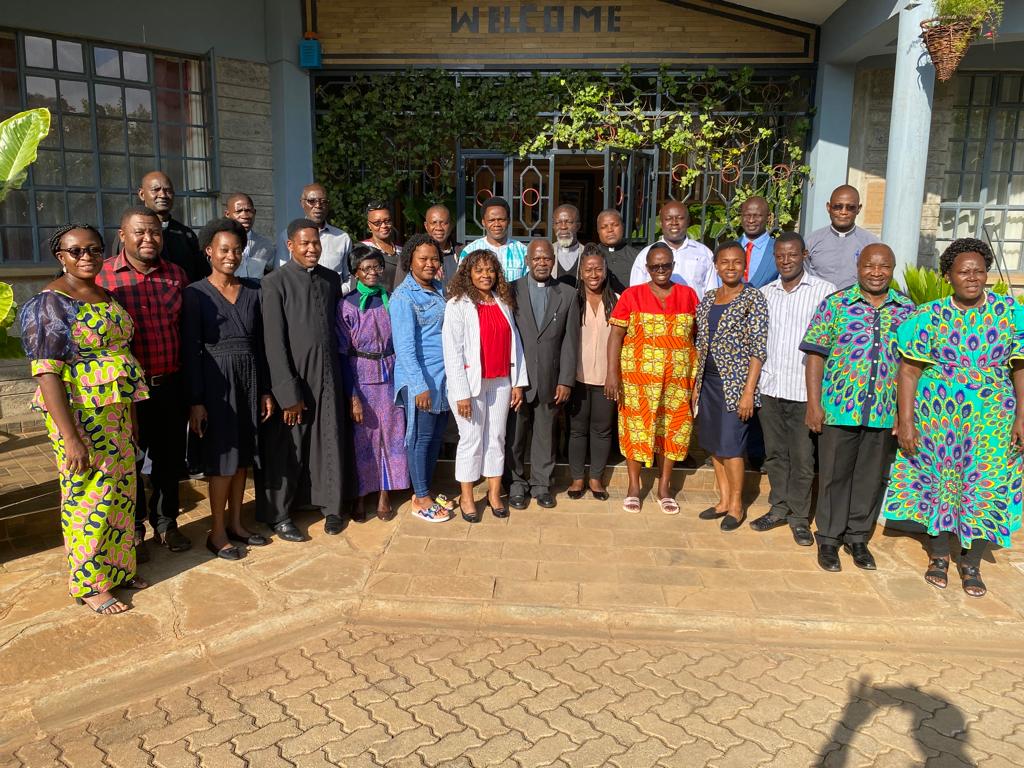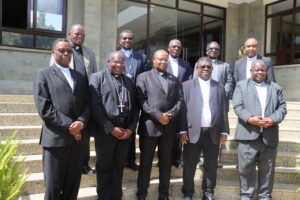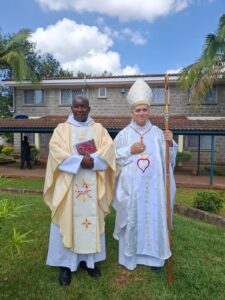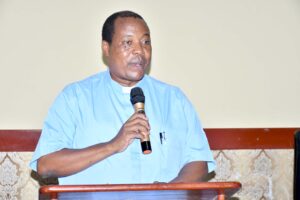SECAM: African Continent Still Far from Being a Family, says SECAM Official at a Family Congress

Congress on family as a domestic Church
Sr. Jecinter Antoinette Okoth, FSSA
Coordinator of Evangelization Commission at the Symposium of Episcopal Conferences of Africa and Madagascar (SECAM) Fr. Rafael Simbine has informed the people of God that the African continent and its Islands has not yet developed the spirit of being “a family.”
Following the resolutions from SECAM’s Kampala Document which was produced after the golden jubilee anniversary of the symposium that was held in Kampala, Uganda in July 2019, African Bishops gave the pastoral guidelines for the Church in Africa and the Islands for the next 50 years, one of the thematic areas being “the family.”
According to Fr. Simbine the convener of the five-day congress that brought together various family members including couples, widowers, young persons, single mothers and fathers, priests and seminarians, the bishops in Africa have reminded the people in the continent that, “The Church-Family of God in Africa implies both communion with God and communion with the brothers and sisters.”
In his opening remarks on Tuesday, May 10, in Nairobi where the congress was taking place, Fr. Simbine who is the Deputy Secretary General of SECAM reflects on the first Special Synod for Africa in 1994 which decided to establish the Church, Family of God in Africa.
He narrates that the Synod noted that, “The new evangelization will tend to build up the Church as a family: seeking to promote reconciliation and true communion among the different ethnic groups, fostering solidarity and the sharing of resources and persons among the particular Churches.”
Cognizant of what is required to build up the Church as family, Fr. Simbine says, 28 years after the first Special Synod, “Africa is still not a family,” since what characterizes a typical African family is, community spirit, family-hood, teamwork, sharing and togetherness,” yet all this is still far from becoming reality” in the continent.
“We see the persistence of tribalism, the permanent conflicts and wars in many parts of Africa, and the cancer of corruption that disgraces millions of Africans,” SECAM’s Deputy Secretary General laments
He emphasized the message in the Kampala Document that, “The Church is a family of persons united by life, mutual acceptance, love, commitment, celebration of faith, forgiveness, joy and sharing. It is a community of building justice, peace, solidarity and fraternity lived in words and deeds.”
To make Africa as a Church- family of God, Fr Simbine said the bishops in Africa acknowledge the need of first “making Christian Families the Domestic Churches.”
“The transformation of Christian families into domestic Churches is seen as a valid instrument to fulfil the dream of the “Church, Family of God in Africa,” the Mozambican clergy said during the Tuesday opening session.
The meeting themed as “Congress on the Family as the Domestic Church in the light of the Kampala Document,” aims to allow a better understanding of the “Family as the domestic church” and to encourage its establishment in all Catholic Christian families all over the Africa and Islands.”
At the same time it is to enlighten participants on “appreciating what a domestic church is and how they can be helped transform our Christian families into domestic churches,” Fr. Simbine explained.
“Our families will become as domestic churches when they will be able to be a privileged space for the exercise of the baptismal priesthood of the entire family: father, mother and children; a place of prayer, reading and meditation on the Word of God; a school of human virtues and Christian charity,” SECAM’s Coordinator of Evangelization Commission narrated.
He emphasized that this will be realized, “When parents will become for their children, by word and example, the first teachers of the faith, transmitting to them the fundamental values of the Christian life: fraternal love, generous forgiveness, justice, peace and reconciliation.”
The congress therefore he said, is an invitation for participants “to go back and transform families into true domestic churches, where it will no longer be necessary to meet God only in church, because He will also be in the family.”
To realize this transformation, the cleric calls for the spirit of prayer saying, “Prayer puts us in communion with God, but also in communion with each other, in communion with our ancestors, our departed brothers and sisters, and in this way puts an end to double worship: to God and to the family gods or spirits.”
“It is only by praying together with our children can a father and mother exercise their royal priesthood, penetrate the innermost depths of their children’s hearts and leave an impression that the future events in their lives will not be able to erase,” he concluded.
The congress brought together participants from 14 countries within Africa and 5 regions of SECAM: Association of Member Episcopal Conferences in Eastern Africa, (AMECEA), Association of Episcopal Conferences of Central Africa Region (ACERAC), Association of Episcopal Conferences of Central Africa (ACEAC), Regional Episcopal Conferences of West Africa, (RECOWA) and Inter-Regional Meeting of the Bishops of Southern Africa (IMBISA).


